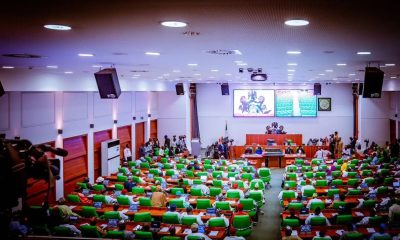NEWS
Explainer: proposed tax exemptions on essential goods in Nigeria

The chairman of the Presidential Committee on Fiscal Policy, Taiwo Oyedele, recently announced that the committee has proposed significant tax reforms to the federal government.
These proposed changes include eliminating taxes on essential goods and services such as food, public transportation, house rents, education, and healthcare.
Here’s what this proposal means, how it could impact the economy and everyday Nigerians, and why it is being considered.
What Does This Proposal Mean?
The proposal aims to eliminate Value-Added Tax (VAT) and other related taxes on basic necessities critical to the daily lives of Nigerians. Essential goods and services like food, transportation, and housing are often subject to various forms of taxation, which can increase their costs for consumers.
By removing these taxes, the government seeks to reduce the financial burden on the average Nigerian, making it easier for them to afford basic necessities.
How Will It Affect the Economy and the Common Man?
1. Reduced Cost of Living:
For the Common Man: The immediate effect of removing taxes on essentials would be a decrease in the prices of these goods and services. This means that the average Nigerian would spend less on food, rent, transportation, and healthcare, which could significantly improve their standard of living.
For the Economy: Lowering the cost of essentials could increase consumer spending in other areas, potentially boosting economic activity. When people have more disposable income, they are likely to spend more on non-essential goods and services, stimulating business growth.
2. Increased Disposable Income:
For the Common Man: With essentials becoming more affordable, individuals and families would have more money left over after covering their basic needs. This could lead to increased savings and investments in other areas, such as education or small businesses.
For the Economy: Higher disposable income can drive economic growth as consumers spend more on goods and services, thereby supporting local businesses and potentially creating more jobs.
3. Stimulated Employment:
For the Common Man: The committee has also proposed tax incentives for businesses that increase their workforce. This could lead to more job opportunities, particularly in the private sector, and reduce unemployment rates.
For the Economy: By encouraging businesses to hire more employees through tax relief, the government hopes to stimulate job creation. Increased employment can lead to higher productivity and economic growth, benefiting the economy as a whole.
Read Also:
Bitcoin drops below $58K amid weekend crypto market turbulence
Edo police arrest native doctor for failed “Anti-Bullet” charm test
Why Does It Have to Be Implemented?
The proposal is part of a broader effort by the Nigerian government to reform the tax system and alleviate the economic pressures faced by its citizens. Here’s why these changes are necessary:
1. Economic Relief: With inflation and rising costs of living, many Nigerians are struggling to afford basic necessities. Removing taxes on these essentials could provide immediate financial relief to millions of people.
2. Encouraging Economic Growth: By reducing the financial burden on consumers and businesses, the government aims to boost spending and investment. This can lead to a more vibrant economy with more opportunities for growth and development.
3. Promoting Social Equity: The proposed tax exemptions are targeted at goods and services that are essential for daily life. This move can help reduce inequality by ensuring that everyone, regardless of income level, has access to affordable essentials.
If implemented, these proposed tax exemptions could have a far-reaching impact on the Nigerian economy and its people. By making basic necessities more affordable, the government hopes to improve the quality of life for its citizens while stimulating economic growth.
The proposed tax exemptions reflect a strategic approach to addressing the economic challenges facing Nigeria today, with the potential to create a more prosperous and equitable society.






















